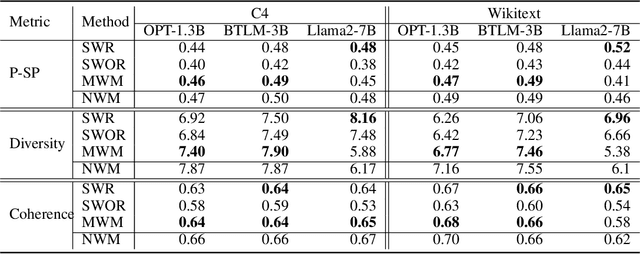I Know You Did Not Write That! A Sampling Based Watermarking Method for Identifying Machine Generated Text
Paper and Code
Nov 29, 2023



Potential harms of Large Language Models such as mass misinformation and plagiarism can be partially mitigated if there exists a reliable way to detect machine generated text. In this paper, we propose a new watermarking method to detect machine-generated texts. Our method embeds a unique pattern within the generated text, ensuring that while the content remains coherent and natural to human readers, it carries distinct markers that can be identified algorithmically. Specifically, we intervene with the token sampling process in a way which enables us to trace back our token choices during the detection phase. We show how watermarking affects textual quality and compare our proposed method with a state-of-the-art watermarking method in terms of robustness and detectability. Through extensive experiments, we demonstrate the effectiveness of our watermarking scheme in distinguishing between watermarked and non-watermarked text, achieving high detection rates while maintaining textual quality.
 Add to Chrome
Add to Chrome Add to Firefox
Add to Firefox Add to Edge
Add to Edge